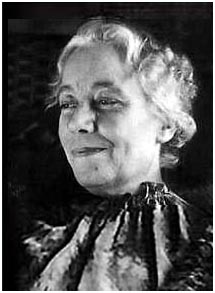
Jacques Marie Émile Lacan was a French psychoanalyst and psychiatrist. Described as "the most controversial psycho-analyst since Freud", Lacan gave yearly seminars in Paris from 1953 to 1981, and published papers that were later collected in the book Écrits. His work made a significant impact on continental philosophy and cultural theory in areas such as post-structuralism, critical theory, feminist theory and film theory, as well as on the practice of psychoanalysis itself.
Castration anxiety is the fear of emasculation in both the literal and metaphorical sense. Castration anxiety is an overwhelming fear of damage to, or loss of, the penis—one of Sigmund Freud's earliest psychoanalytic theories. Although Freud regarded castration anxiety as a universal human experience, few empirical studies have been conducted on the topic. The theory is that a child has a fear of damage being done to their genitalia by the parent of the same sex as punishment for sexual feelings toward the parent of the opposite sex. It has been theorized that castration anxiety begins between the ages of 3 and 5, otherwise known as the phallic stage of development according to Freud. Although typically associated with males, castration anxiety is theorized to be experienced in differing ways for both the male and female sexes.
Luce Irigaray is a Belgian-born French feminist, philosopher, linguist, psycholinguist, psychoanalyst, and cultural theorist who examined the uses and misuses of language in relation to women. Irigaray's first and most well known book, published in 1974, was Speculum of the Other Woman (1974), which analyzes the texts of Freud, Hegel, Plato, Aristotle, Descartes, and Kant through the lens of phallocentrism. Irigaray is the author of works analyzing many thinkers, including This Sex Which Is Not One (1977), which discusses Lacan's work as well as political economy; Elemental Passions (1982) can be read as a response to Merleau‐Ponty's article “The Intertwining—The Chiasm” in The Visible and the Invisible, and in The Forgetting of Air in Martin Heidegger (1999), Irigaray critiques Heidegger's emphasis on the element of earth as the ground of life and speech and his "oblivion" or forgetting of air.

In Freudian psychoanalysis, the phallic stage is the third stage of psychosexual development, spanning the ages of three to six years, wherein the infant's libido (desire) centers upon their genitalia as the erogenous zone. When children become aware of their bodies, the bodies of other children, and the bodies of their parents, they gratify physical curiosity by undressing and exploring each other and their genitals, the center of the phallic stage, in course of which they learn the physical differences between "male" and "female", and the gender differences between "boy" and "girl", experiences which alter the psychologic dynamics of the parent and child relationship. The phallic stage is the third of five Freudian psychosexual development stages: (i) the oral, (ii) the anal, (iii) the phallic, (iv) the latent, and (v) the genital.
In Freudian psychology, psychosexual development is a central element of the psychoanalytic sexual drive theory. Freud believed that personality developed through a series of childhood stages in which pleasure seeking energies from the child became focused on certain erogenous areas. An erogenous zone is characterized as an area of the body that is particularly sensitive to stimulation. The five psychosexual stages are the oral, the anal, the phallic, the latent, and the genital. The erogenous zone associated with each stage serves as a source of pleasure. Being unsatisfied at any particular stage can result in fixation. On the other hand, being satisfied can result in a healthy personality. Sigmund Freud proposed that if the child experienced frustration at any of the psychosexual developmental stages, they would experience anxiety that would persist into adulthood as a neurosis, a functional mental disorder.
Nancy Julia Chodorow is an American sociologist and professor. She began her career as a professor of Women's studies at Wellesley College in 1973, and from 1974 on taught at the University of California, Santa Cruz, until 1986. She then was a professor in the departments of sociology and clinical psychology at the University of California, Berkeley until she resigned in 1986, after which she taught psychiatry at Harvard Medical School/Cambridge Health Alliance. Chodorow is often described as a leader in feminist thought, especially in the realms of psychoanalysis and psychology.

Helene Deutsch was a Polish American psychoanalyst and colleague of Sigmund Freud. She founded the Vienna Psychoanalytic Institute. In 1935, she immigrated to Cambridge, Massachusetts, where she maintained a practice. Deutsch was one of the first psychoanalysts to specialize in women. She was a Fellow of the American Academy of Arts and Sciences.
Phallocentrism is the ideology that the phallus, or male sexual organ, is the central element in the organization of the social world. Phallocentrism has been analyzed in literary criticism, psychoanalysis and psychology, linguistics, medicine and health care, and philosophy.
Feminine psychology or the psychology of women is an approach that focuses on social, economic, and political issues confronting women all throughout their lives. It emerged as a reaction to male-dominated developmental theories such as Sigmund Freud's view of female sexuality. The original work of Karen Horney argued that male realities cannot describe female psychology or define their gender because they are not informed by girls' or women's experiences. Theorists claimed this new feminist approach was required, and that women's social existence was crucial in understanding their psychology. It is suggested in Dr. Carol Gilligan's research that some characteristics of female psychology emerge to comply with the given social order defined by men and not necessarily because it is the nature of their gender or psychology.
Barbara Creed is a professor of cinema studies in the School of Culture and Communication at the University of Melbourne. She is the author of six books on gender, feminist film theory, and the horror genre. Creed is a graduate of Monash and La Trobe universities where she completed doctoral research using the framework of psychoanalysis and feminist theory to examine horror films. She is known for her cultural criticism.

Karen Horney was a German psychoanalyst who practised in the United States during her later career. Her theories questioned some traditional Freudian views. This was particularly true of her theories of sexuality and of the instinct orientation of psychoanalysis. She is credited with founding feminist psychology in response to Freud's theory of penis envy. She disagreed with Freud about inherent differences in the psychology of men and women, and she traced such differences to society and culture rather than biology. She is often classified as neo-Freudian.
Antoinette Fouque was a French psychoanalyst who was involved in the French women's liberation movement. She was the leader of one of the groups that originally formed the French Women's Liberation (MLF), and she later registered the trademark MLF specifically under her name. She helped found the publishing house Éditions des Femmes as well as the first collection of audio-books in France, "Bibliothèque des voix". Her position in feminist theory was primarily essentialist, and heavily based in psychoanalysis. She helped author Le Dictionnaire universel des créatrices (2013), a biographical dictionary about creative women.

In neo-Freudian psychology, the Electra complex, as proposed by Carl Jung in his Theory of Psychoanalysis, is a girl's psychosexual competition with her mother for possession of her father. In the course of her psychosexual development, the complex is the girl's phallic stage; a boy's analogous experience is the Oedipus complex. The Electra complex occurs in the third—phallic stage —of five psychosexual development stages: the oral, the anal, the phallic, the latent, and the genital—in which the source of libido pleasure is in a different erogenous zone of the infant's body.

The Oedipus complex is an idea in psychoanalytic theory. The complex is a universal phase in the life of a young boy in which, to try to immediately satisfy basic desires, unconsciously wishes to have sex with his mother and disdains his father for having sex and being satisfied before him. Sigmund Freud introduced the idea in The Interpretation of Dreams (1899), and coined the term in his paper A Special Type of Choice of Object made by Men (1910).
Penis envy is a stage theorized by Sigmund Freud regarding female psychosexual development, in which young girls experience anxiety upon realization that they do not have a penis. Freud considered this realization a defining moment in a series of transitions toward a mature female sexuality. In Freudian theory, the penis envy stage begins the transition from an attachment to the mother to competition with the mother for the attention, recognition and affection of the father. The parallel reaction of a boy's realization that women do not have a penis is castration anxiety.
Poststructural feminism is a branch of feminism that engages with insights from post-structuralist thought. Poststructural feminism emphasizes "the contingent and discursive nature of all identities", and in particular the social construction of gendered subjectivities. A contribution of this branch was to argue that there is no universal single category of "woman" or "man."
Phallic monism is a term introduced by Chasseguet-Smirgel to refer to the theory that in both sexes the male organ—i.e. the question of possessing the penis or not—was the key to psychosexual development.
Neofeminism describes an emerging view of women as becoming empowered through the celebration of attributes perceived to be conventionally feminine, that is, it glorifies a womanly essence over claims to equality with men. It is a term that has come into use in the early 21st century to refer to a popular culture trend, what critics see as a type of "lipstick feminism" that confines women to stereotypical roles, while it erodes cultural freedoms women gained through the second-wave feminism of the 1960s and 1970s in particular.
In psychoanalysis, phallic woman is a concept to describe a woman with the symbolic attributes of the phallus. More generally, it describes any woman possessing traditionally masculine characteristics.
Archaic mother is the mother of earliest infancy, whose continuing influence is traced in psychoanalysis, and whose (repressed) presence is considered to underlie the horror film.







